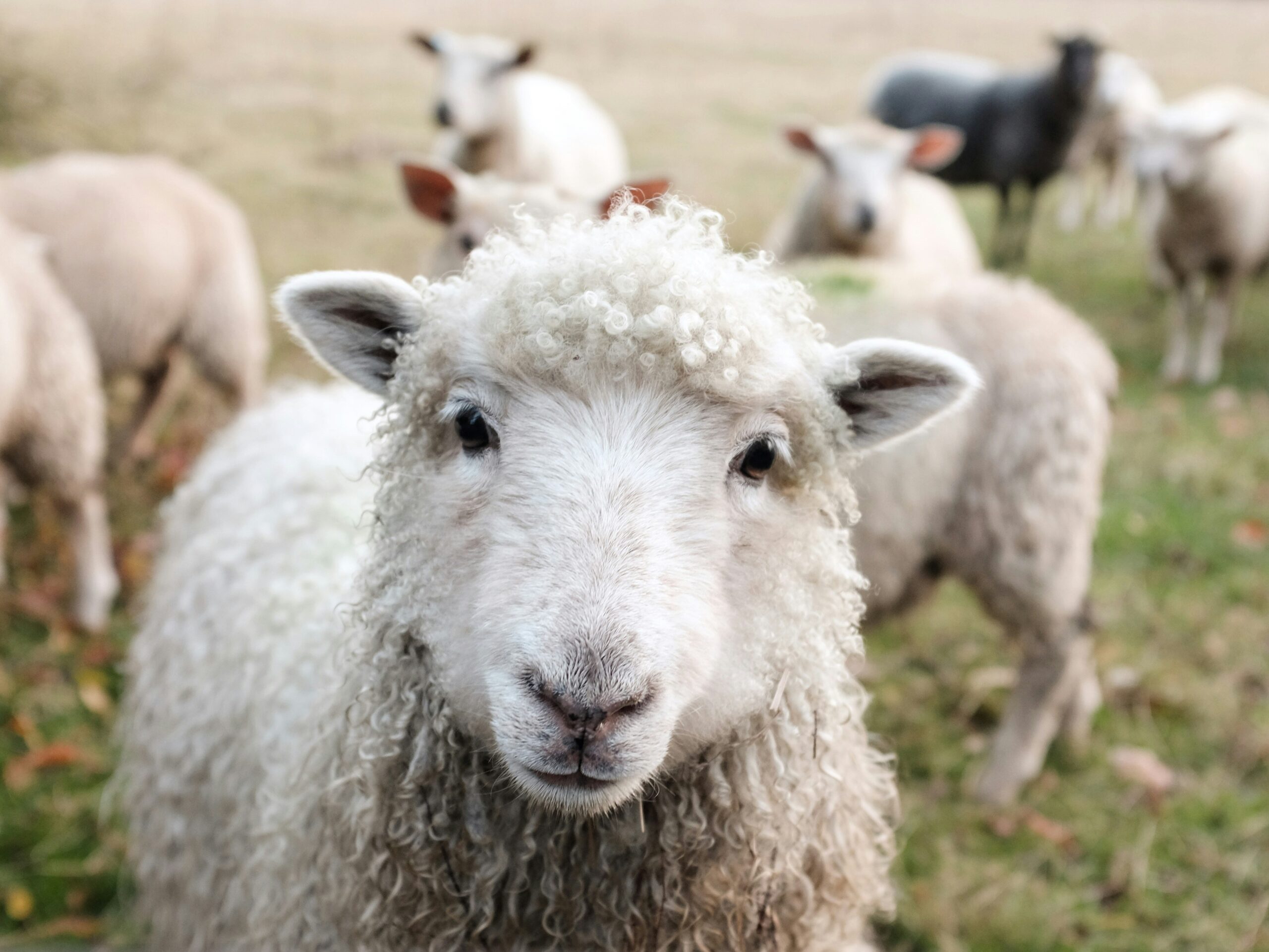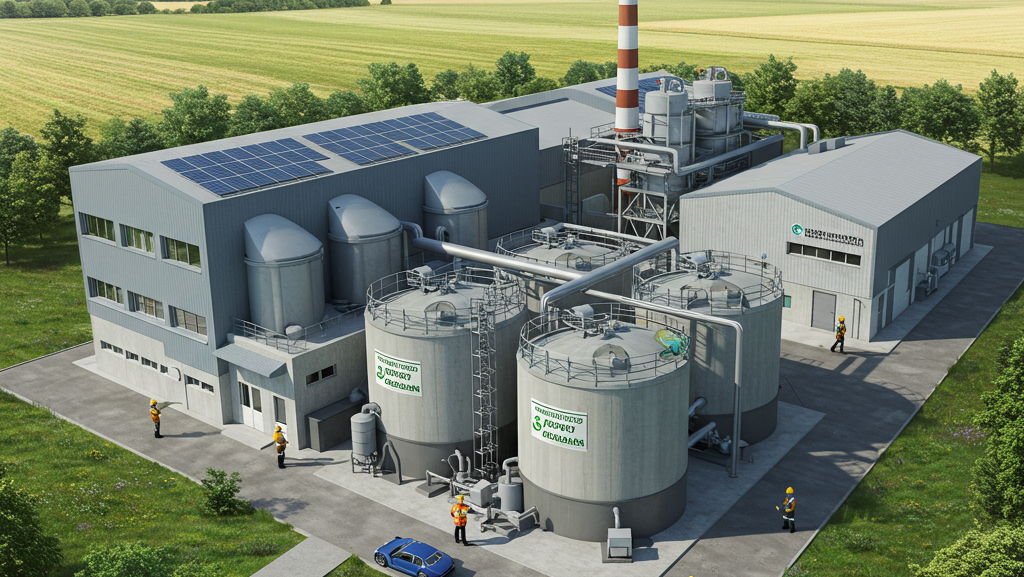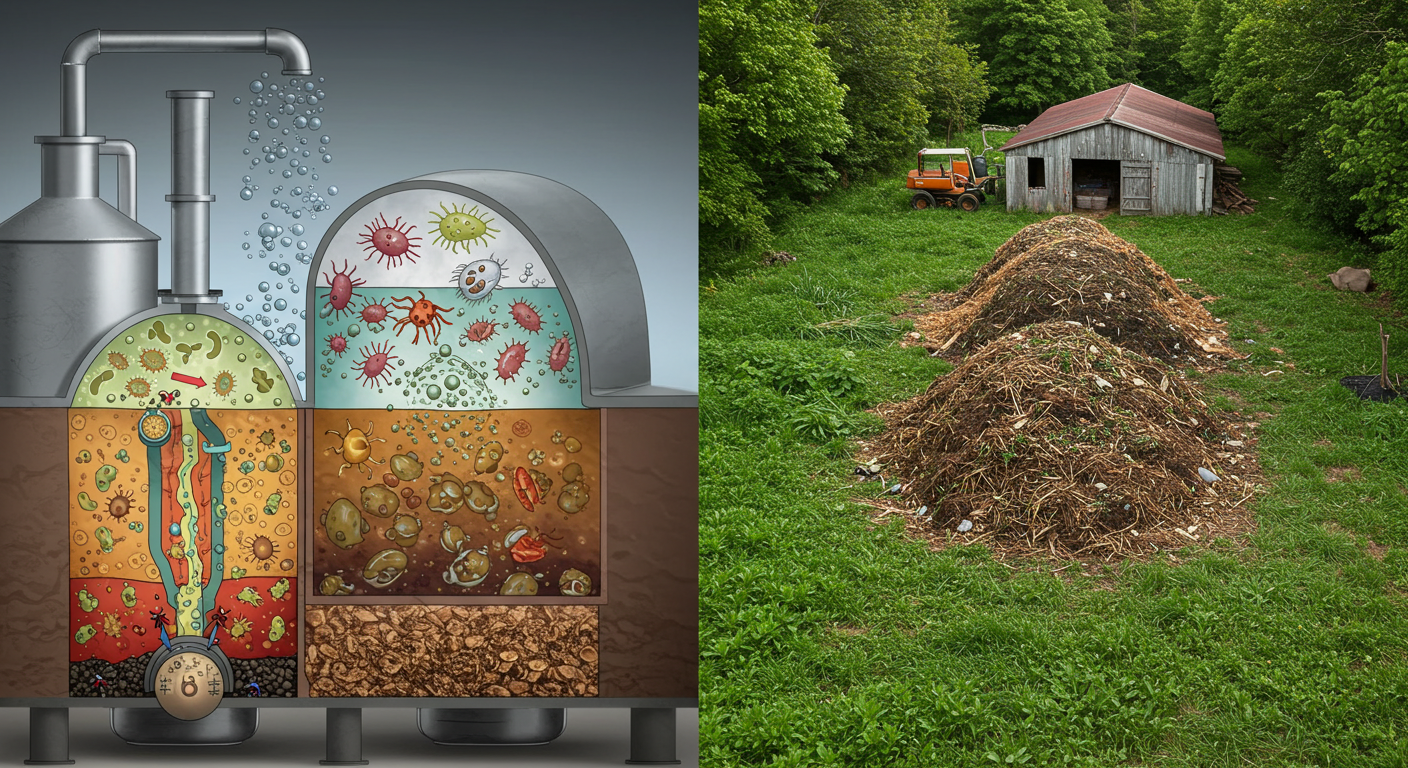Introduction to Farm Branding
Farm branding plays a pivotal role in the contemporary agricultural landscape, where discerning consumers are increasingly inclined to make choices based on the origins of their food. The concept of branding extends beyond a mere logo or catchy tagline; it encapsulates the entire identity and reputation of a farm. Effective branding serves to enhance visibility, create a loyal customer base, and differentiate products in a competitive market. In an era dominated by mass production and global supply chains, establishing a strong farm brand has become critical for farmers wishing to stand out.
Branding in agriculture allows farms to convey their unique story, ethos, and values, which can resonate with consumers on an emotional level. Many people prefer to support local and sustainable farming practices, fostering a sense of community connection through the products they purchase. By developing a strong brand, farms can build trust and loyalty among customers who appreciate the transparency and authenticity behind their food sources. This emotional connection is essential, as it can lead to repeat purchases and word-of-mouth promotion, which are invaluable in the agricultural sector.
Moreover, branded merchandise serves as a powerful tool for reinforcing this relationship. When consumers purchase farm-branded items, they are not just buying products but investing in the brand’s story. These merchandise items can range from clothing and reusable bags to home goods and food products, transforming everyday objects into marketing opportunities. Through effective farm branding, farmers can narrate their journey, share their practices, and connect with consumers in a meaningful way, ultimately influencing their buying decisions and loyalty.
Identifying Your Target Audience
Understanding your target audience is a fundamental step in effectively creating and distributing farm-branded merchandise. By defining who your potential customers are, you can tailor your products to meet their specific needs and preferences, thus enhancing the likelihood of successful sales. To achieve this, it is essential to engage in thorough market research, which will enable you to gather valuable insights into customer demographics, interests, and purchasing behavior.
Begin by segmenting your audience based on demographic information such as age, gender, income level, and location. This segmentation will help you to understand the broader landscape of potential customers. For instance, a farm that produces organic products may attract health-conscious consumers, young families, or environmentally aware individuals. Analyzing this data will allow you to tailor your merchandise to resonate with these specific groups.
Beyond demographics, it is equally important to consider psychographics, which delve into the values, lifestyles, and interests of your audience. Conducting surveys and interviews can provide deeper insights into what motivates your customers. Additionally, utilizing social media analytics can help identify trends and preferences that naturally align with your farm’s brand. Understanding what your audience values—whether it be sustainability, quality, or nostalgia—will guide the design and messaging of your merchandise.
Furthermore, studying the purchasing behavior of your audience can provide insights into what types of merchandise are likely to succeed. Are they more inclined to shop online or prefer attending local markets? Recognizing these behavioral patterns helps in determining distribution channels that effectively reach your audience. Ultimately, aligning your farm-branded merchandise with the identified values and interests of your target customers is essential for maximizing its appeal and ensuring an impactful market presence.
Selecting Merchandise Types
When it comes to creating farm-branded merchandise, the choices are vast and varied, reflecting the unique identity of the farm while also serving a practical purpose. Apparel, such as t-shirts, hats, and sweatshirts, is often considered a staple for promoting a farm. These items not only provide visibility for the brand but also allow customers to feel a connection to the farm, especially when the designs incorporate local themes or imagery. The comfort and practicality of apparel make it a favored choice among merchandise options.
Another category worth considering includes accessories, such as bags, aprons, and reusable shopping totes. These items serve dual purposes: offering utility to customers and promoting sustainability, particularly for farms that prioritize eco-friendly practices. By selecting materials that are organic or locally sourced, farms can enhance their brand message while appealing to consumers who are increasingly aware of environmental considerations.
Home goods represent yet another avenue for merchandise selection. Products like kitchen towels, mugs, and decorative items can embody the farm’s ethos, especially if they feature custom designs or branding elements. Such items can serve as visual reminders of the farm experience and are typically well-received by consumers who appreciate quality home products. Additionally, packaging these products thoughtfully plays a significant role in the overall appeal.
Promotional items, including reusable straws, keychains, or stickers, may seem lesser in value but can effectively increase brand recognition, particularly during events or farmers’ markets. Their low cost allows for bulk purchases, enabling widespread distribution without substantial investment. Regardless of the merchandise type chosen, it is essential to ensure that the products align with the farm’s brand identity and values, emphasizing sustainability and local production whenever possible. This strategy not only fosters consumer loyalty but also contributes to the community’s economy.
Designing Your Merchandise
Creating effective farm-branded merchandise begins with a thoughtful design process that encapsulates the essence of the farm’s identity. This identity is often expressed through key elements such as colors, logos, slogans, and overall aesthetics, which serve to engage customers and promote brand loyalty. When selecting colors, choose a palette that resonates with the farm’s values and the sentiments you wish to evoke in potential buyers. For example, earthy tones might suggest organic practices, while vibrant hues may reflect a fun and family-friendly environment.
The logo is a crucial part of any merchandise design. It should be memorable, versatile, and easily recognizable. Collaborating with a professional designer can enhance this process, ensuring that the logo embodies the farm’s unique characteristics. A well-designed logo plays a significant role in building brand recognition; it should work well across various products, from hats and shirts to packaging and promotional materials.
In addition to visual elements, a catchy slogan can elevate the appeal of farm-branded merchandise. An effective slogan should communicate the farm’s mission or values in a succinct and memorable way, allowing customers to form an emotional connection. Consider including your farm’s story or commitment to sustainable practices in the slogan to strengthen this bond.
Moreover, the overall aesthetics of the merchandise need to align with the intended market. Understanding the target audience’s preferences will guide design choices, ensuring that the merchandise not only looks appealing but also resonates with potential buyers. Collaborating with local artists can provide a unique touch that reflects the local culture and craftsmanship, further enhancing the merchandise’s appeal. By investing in professional design services and meaningful collaboration, farms can create high-quality branded merchandise that stands out in a competitive market.
Sourcing and Production
Sourcing materials and determining production methods are crucial steps in creating farm-branded merchandise that aligns with the values of your agricultural business. When embarking on this journey, it is essential to identify ethical suppliers who not only provide quality materials but also maintain sustainable practices. By selecting suppliers who adhere to ethical standards, farmers can promote their brand values while contributing to a responsible supply chain.
Cost assessment plays a pivotal role in the decision-making process. Understanding production expenses helps establish a budget that balances quality with financial feasibility. Producers should evaluate different suppliers and the materials they offer, weighing the costs against the anticipated benefits of brand promotion. This assessment can involve sourcing local materials, which not only supports the nearby economy but also resonates with consumers seeking local authenticity.
When deciding between in-house and outsourced manufacturing, it is imperative to consider the capabilities of your farm. In-house production may allow for greater control over quality and branding, while outsourcing can offer access to specialized skills and larger production capacities. Each option has its advantages and disadvantages; hence, a thorough analysis of your operational strengths and limitations is recommended. For considerations such as product complexity and volume, outsourcing might be more beneficial, especially if it results in higher quality outcomes.
Maintaining quality control throughout the sourcing and production process is vital for sustaining a credible brand image. Setting clear quality standards, conducting regular audits, and implementing feedback mechanisms can ensure that the final products reflect the values of your farm. Through diligent sourcing and production strategies, farmers can effectively create merchandise that not only promotes their brand but also fosters a loyal consumer base.
Creating an Effective Distribution Strategy
When it comes to promoting a farm through branded merchandise, creating an effective distribution strategy is crucial. A well-planned distribution approach not only enhances visibility but also maximizes sales potential. Successful distribution methods include online sales, farmers markets, local retail partnerships, and community events. Each of these channels carries distinct advantages and challenges that farmers should consider.
Online sales offer a convenient platform for reaching a broader audience. Utilizing e-commerce platforms enables farms to sell merchandise directly to consumers regardless of their physical location. This method allows for the flexibility of operations, as farmers can manage inventory through digital means. However, online selling requires investments in marketing and the establishment of a user-friendly website. Additionally, farmers must handle logistics related to shipping and returns, which can become complex over time.
Farmers markets represent another viable distribution channel, providing an opportunity for direct interaction with customers. This approach allows farmers to engage with consumers face-to-face, fostering community relationships while promoting their brand. However, the success of this distribution method may depend on seasonal availability and competition from other vendors, potentially limiting the number of sales during off-peak times.
Partnering with local stores can enhance visibility as well. Retail outlets may be interested in carrying local brands, which provides exposure to a different customer base. Yet, maintaining product availability and managing wholesale pricing can pose challenges in this approach.
Finally, participating in community events can be an effective strategy for promoting merchandise. These events allow for broader community engagement and can lead to increased brand loyalty. However, logistical considerations such as booth setup and potential costs associated with participation must be accounted for.
Implementing a multi-channel distribution approach offers the best of all worlds, providing various avenues through which customers can access farm-branded merchandise. By strategically assessing each option’s advantages and challenges, farmers can create a robust distribution strategy tailored to their specific needs and capabilities.
Marketing Your Merchandise
Marketing your farm-branded merchandise effectively requires a strategic approach that captivates your target audience. The utilization of social media platforms serves as an invaluable tool for reaching a diverse consumer base. Platforms such as Instagram, Facebook, and Twitter allow farms to visually showcase their products and promote their unique brand story. Engaging graphics, behind-the-scenes content, and high-quality images of merchandise can enhance consumer interest and foster a sense of connection. Utilize features such as Instagram Stories and Facebook Live to engage directly with your audience, answering questions about your products and the farming process.
Email newsletters are another powerful marketing vehicle for sharing updates about your merchandise. A strategically crafted newsletter can inform subscribers about new product launches, seasonal specials, and important farm news. Including personal anecdotes or updates from the farm can further humanize your brand, allowing consumers to form a deeper emotional connection. Providing exclusive content or discounts through newsletters can incentivize recipients to make purchases while reinforcing their allegiance to your brand.
In-person promotions, such as farmers’ markets or community events, also present a unique opportunity to market your merchandise. These gatherings not only allow direct interaction with potential customers but also create an atmosphere for storytelling. Sharing tales of farm heritage, sustainable practices, and the passion behind your products can resonate with attendees, transforming them into loyal customers. Offering samples or live demonstrations can enhance the allure of your merchandise, making it more tangible to consumers.
Ultimately, the key to marketing farm-branded merchandise lies in creating a community around your brand. By effectively employing storytelling techniques and engaging marketing tactics, you can cultivate a loyal customer base eager to support your farm and its offerings.
Creating Partnerships and Collaborations
Forming strategic partnerships and collaborations with local businesses, organizations, and influencers can yield significant benefits for farms seeking to promote their branded merchandise. Such alliances not only enhance visibility but also broaden the outreach of marketing efforts, thereby maximizing the potential for sales growth and brand recognition.
When farms collaborate with local businesses, they tap into each other’s customer bases, resulting in a synergistic effect. For example, a farm might partner with a nearby restaurant to supply fresh produce. In return, the restaurant could promote the farm’s merchandise on its menu and social media platforms. This mutually beneficial relationship not only highlights the farm’s products but also reinforces the restaurant’s commitment to locally sourced ingredients. Moreover, the collaboration can lead to joint events, enhancing community engagement and visibility for both parties.
Beyond local businesses, farms can also benefit from alliances with organizations that share similar values or target demographics. For instance, partnering with a local environmental group can help promote sustainable farming practices. Through co-hosting workshops or joint promotional initiatives, farms can reach a broader audience and reinforce their brand ethos, particularly among eco-conscious consumers.
Influencer collaborations can also be an effective strategy. Engaging local influencers, such as food bloggers or sustainability advocates, can amplify merchandise promotion and expose the farm brand to a digitally-savvy audience. When influencers showcase farm-branded products in authentic settings, it resonates with their followers and drives curiosity about the farm, ultimately leading to increased sales and customer loyalty.
Successful partnerships in the agricultural sector underscore the importance of collaboration. Factors such as shared goals and aligned values are essential for creating effective partnerships that foster long-term growth and visibility. By strategically cultivating alliances, farms can significantly enhance the promotion of their branded merchandise and develop a more robust presence in their communities.
Evaluating Success and Adjusting Strategies
Evaluating the success of your farm-branded merchandise requires a systematic approach to tracking sales and gathering customer feedback. By establishing clear key performance indicators (KPIs), you will be able to measure the effectiveness of your merchandise strategy effectively. Common KPIs to consider include sales volume, revenue growth, customer acquisition rates, and return on investment (ROI) for marketing campaigns. Understanding these metrics allows for a comprehensive assessment of your merchandise’s performance.
Once you have instituted these KPIs, utilizing data analytics tools can help you gather insights into customer behavior and preferences. These tools can track which items are most popular, seasonal buying trends, and the effectiveness of various marketing channels. By analyzing this data, you can make informed decisions about which products to promote, how to shape future campaigns, and whether to introduce new merchandise lines that align with customer interests.
Customer feedback plays a crucial role in evaluating success as well. Engaging with your audience through surveys, social media interactions, or direct customer communications can provide invaluable insights into their perceptions of your farm-branded merchandise. This feedback will help you determine if your offerings meet customer expectations, and it will guide improvements for future collections. Moreover, understanding the reasons behind customer referrals or complaints can illuminate pathways to enhance your brand’s image and product quality.
As you gather and analyze this information, it is vital to remain flexible and ready to adjust your merchandise strategies. The agricultural and consumer landscapes can shift unexpectedly, thereby necessitating real-time adaptations to your approach. Regularly reviewing your data and adjusting your inventory, marketing efforts, and product designs accordingly will ensure that your farm-branded merchandise continues to resonate with your target audience, ultimately fostering sustained growth and brand loyalty.





